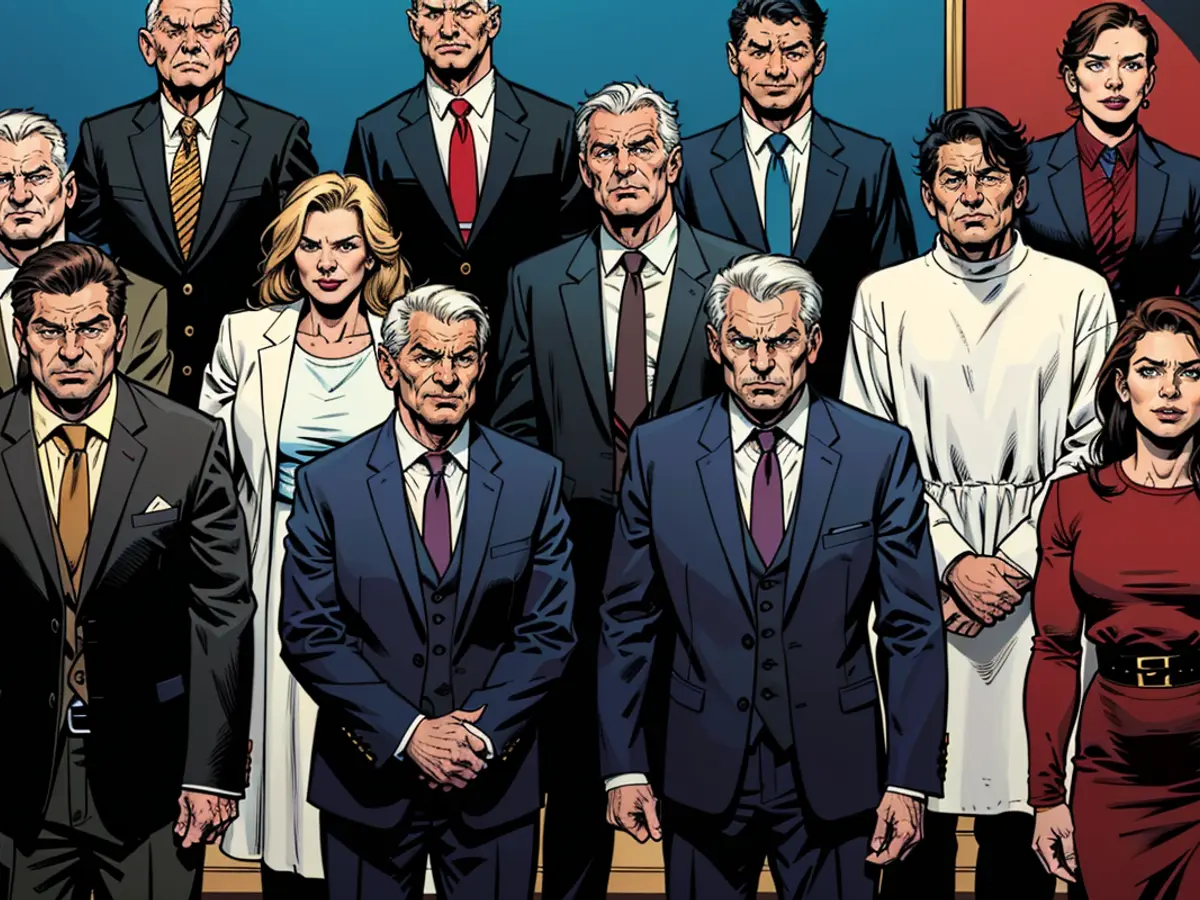Government consultations: Scholz and Tusk want to deepen cooperation on defense
Germany and Poland should already be "good neighbors, close partners and reliable friends," but wanted to create a new dynamics by expanding their cooperation in many areas, Scholz said. Both sides have therefore adopted an action plan that covers areas such as border protection and the fight against illegal immigration, climate protection, energy, transport and Artificial Intelligence.
A special focus of the German-Polish action plan is on defense political cooperation. In the 40-page document, Russia is referred to as "the most immediate threat to European security." The Russian aggression against Ukraine served as a reminder to EU countries "in the most brutal way possible" of how important peacekeeping in Europe is and "that Europe must be able to defend itself."
Scholz stressed in Warsaw that Germany and Poland are among the largest supporters of Ukraine - politically, militarily and in the acceptance of refugees. In addition, both played a leading role in the Baltic Sea region and in the protection of NATO's eastern flank. Tusk sees Germany as a leading power "for Europe's common security, including Poland."
Another important topic during the government consultations was the processing of NS crimes against Poland. "Germany is aware of the gravity of its guilt, of its responsibility for the millions of victims of German occupation and the mandate that arises from it," Scholz said. Therefore, his cabinet decided last week to found a German-Polish House in the center of Berlin, which should remember the Polish victims of the Second World War.
Tusk did not renew earlier reparations demands of his country against Germany on request. The national-conservative predecessor government under the PiS party had demanded reparations in the amount of 1.3 trillion euros for the damages caused by Nazi Germany in the Second World War.
Scholz was received with military honors by Tusk on Tuesday morning in Warsaw. After a face-to-face meeting between the two government leaders, the government consultations took place, which were attended from the German side by ten ministers and ministers, including Foreign Minister Annalena Baerbock, Interior Minister Nancy Faeser and Defense Minister Boris Pistorius (both SPD) as well as two state ministers and the coordinator for German-Polish cooperation, Dietmar Nietan.
These were the first government consultations between the two neighboring countries in six years. The PiS government had kept a deliberate distance from Germany.
- Olaf Scholz highlighted the need for Germany and Poland to strengthen their cooperation in defense political matters, citing Russia as the "most immediate threat to European security" in the 40-page action plan.
- The German-Polish action plan, which includes defense cooperation, was adopted in response to Russia's aggressive actions towards Ukraine.
- Tusk commended Scholz for Germany's support towards Ukraine, both politically, militarily, and in accepting refugees.
- According to Tusk, Germany serves as a leading power in ensuring Europe's common security, including Poland.
- During the government consultations, Scholz and other German ministers discussed the processing of Nazi crimes against Poland, with Scholz acknowledging Germany's responsibility for the atrocities committed during the Second World War.
- Scholz and his cabinet decided to establish a German-Polish House in Berlin to remember the Polish victims of the Second World War.
- Recent government consultations between Germany and Poland concluded, marking a shift from the six-year hiatus under the PiS government.
- The PiS government maintained a distance from Germany, but now, the two neighboring countries are looking to strengthen their partnership in various fields.
- In light of the ongoing war in Ukraine, Germany recognizes the importance of maintaining peace within Europe and the need for Europe to have the capability to defend itself.
- With cooperation in critical areas such as border protection, defense, and climate change, Germany and Poland aim to foster a closer partnership, fulfilling Scholz's vision of good neighbors, close partners, and reliable friends.







